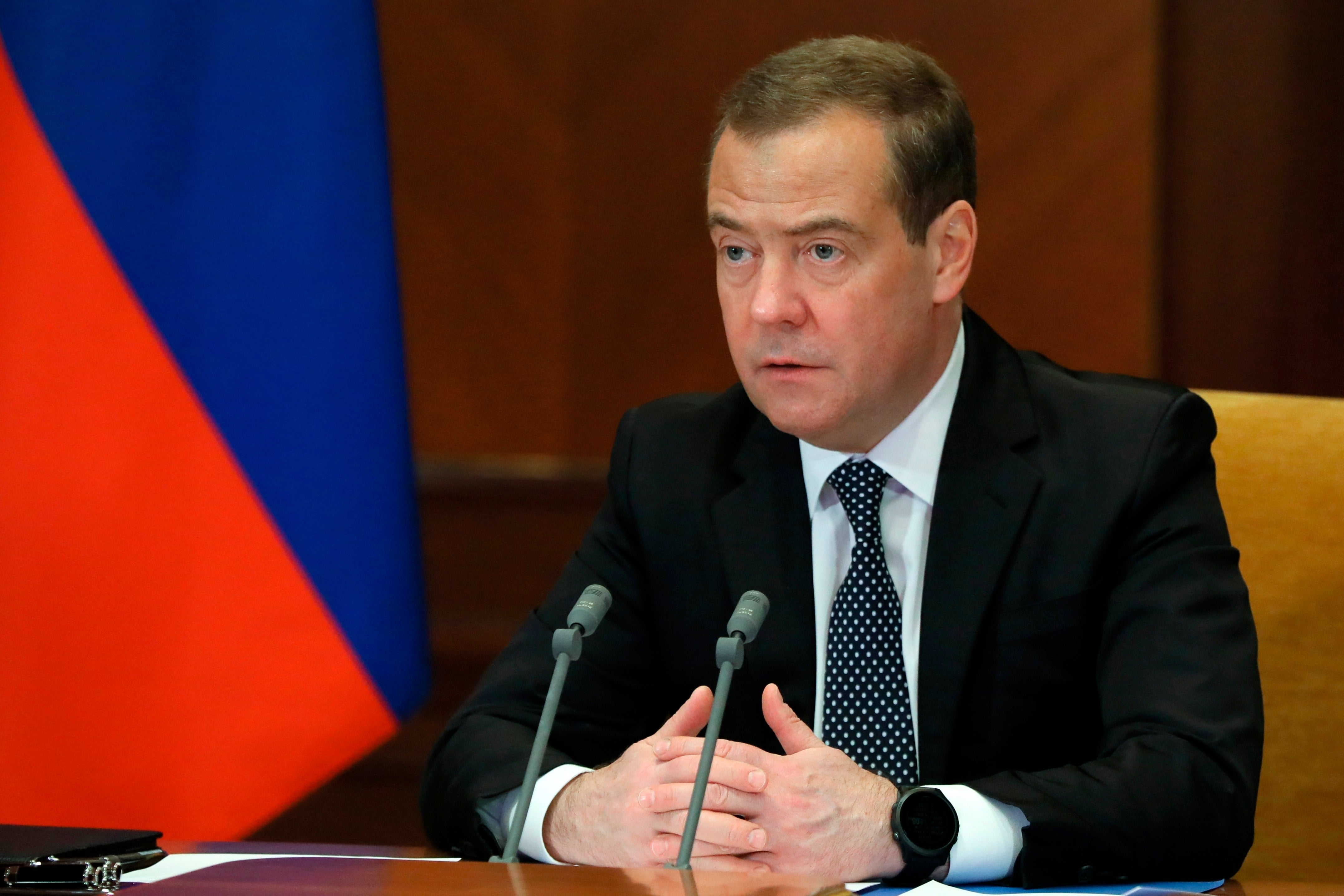‘They hate us all,’ claims former Russian leader in latest sanctions row
Dmitry Medvedev says sanctions don’t harm the Russian political elite or big business

Western sanctions against Russia are motivated by “hatred”, according to a former Russian president with close links to Vladimir Putin.
Dmitry Medvedev, the deputy head of the country’s security council, also alleged that sanctions against the country are aimed at hurting ordinary Russian people.
He wrote on the Telegram messenger app on Tuesday: “They hate us all! The basis for these decisions is hatred for Russia, for Russians and for all its inhabitants.”
Despite that, Medvedev claimed sanctions are not affecting the political elite and won't be “fatal” for big business, but are “directed precisely against the people of Russia”.
Western measures affecting oil and gas are aimed at forcing the government to introduce budget cuts, he said, adding: “An embargo on buying oil and gas from Russia? The same thing: to reduce the budget incomes and force the state to abandon its social obligations such as raising payments in line with inflation.”
It comes as European Union leaders moved on Monday night to impose a partial oil embargo on Russia, following a summit that saw a long-delayed package of sanctions blocked by Hungary.
The watered-down embargo covers only Russian oil brought in by sea, allowing a temporary exemption for imports delivered by pipeline.
EU council president Charles Michel said on Twitter the agreement covers more than two-thirds of oil imports from Russia, “cutting a huge source of financing for its war machine. Maximum pressure on Russia to end the war.”
The EU had already imposed five previous rounds of sanctions on Russia over its war, but the sixth package of measures announced at the beginning of May had been held up by concerns over oil supplies.
Hungarian prime minister Viktor Orban had made clear he could support the new sanctions only if his country's oil supply security was guaranteed.
Ursula von der Leyen, the president of the European Commission, said the move would “effectively cut around 90 per cent of oil imports from Russia to the EU by the end of the year”.
The EU gets about 40 per cent of its natural gas and 25 per cent of its oil from Russia.
In a 10-minute video address, Ukrainian president Volodomyr Zelensky told leaders to end “internal arguments that only prompt Russia to put more and more pressure on the whole of Europe”.
French officials said the decision by Germany and Poland to phase out Russian oil by the end of the year and to forgo oil from the Druzhba pipeline will help reach the 90 per cent threshold announced by Ms von der Leyen.
Subscribe to Independent Premium to bookmark this article
Want to bookmark your favourite articles and stories to read or reference later? Start your Independent Premium subscription today.
Join our commenting forum
Join thought-provoking conversations, follow other Independent readers and see their replies
Comments